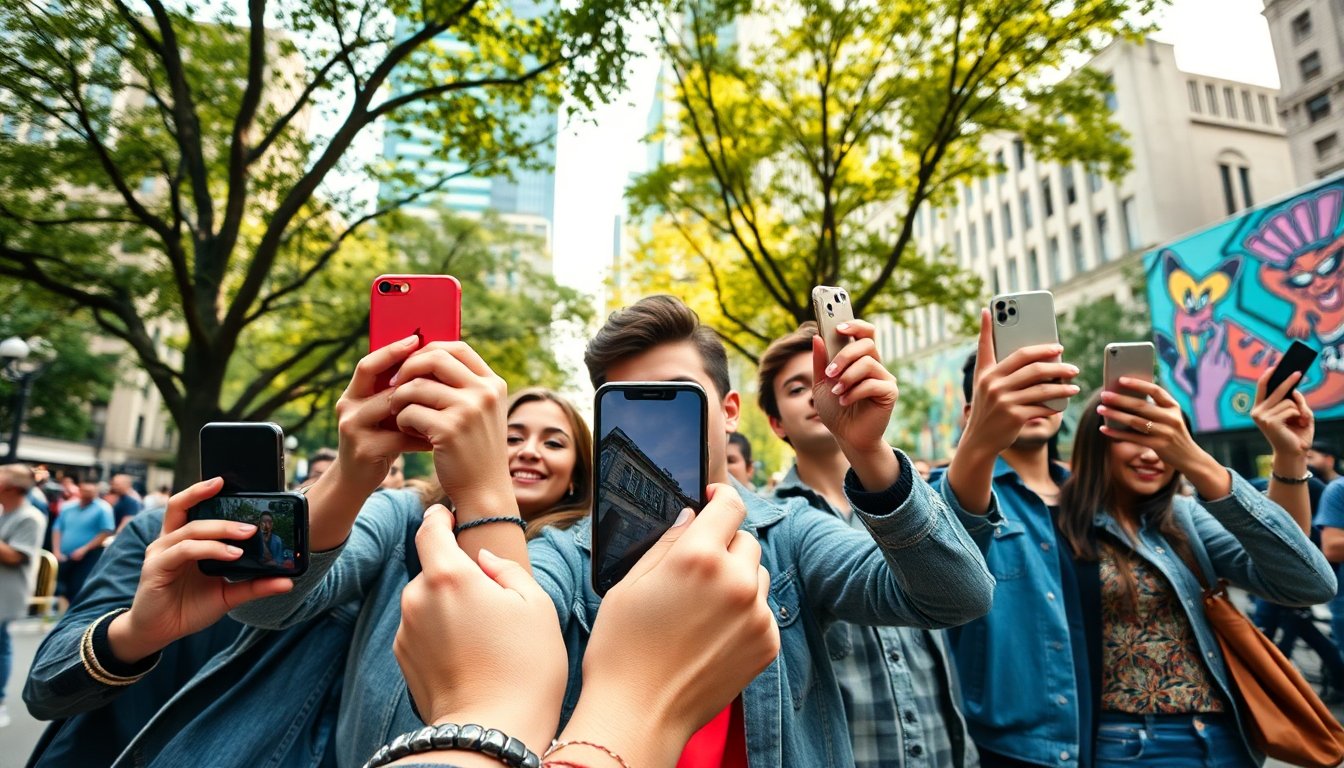Table of Contents
In the age of social media, the American celebrity culture has undergone a significant transformation. Once dominated by traditional media outlets, the rise of platforms such as Instagram, TikTok, and YouTube has given birth to a new generation of celebrities. These influencers often achieve fame overnight, changing our perception and engagement with celebrity status. Grasping this evolution is essential to understanding the broader implications of fame in contemporary American society.
The Rise of Social Media Influencers
The emergence of social media has fundamentally altered the landscape of celebrity culture. Today, individuals can achieve fame through their unique talents or even their distinct personalities, without relying on traditional media validation. Social media influencers have seized this opportunity, using these platforms to cultivate personal brands and connect directly with their audiences.
Authenticity and Relatability
A key driver behind the success of influencers is their perceived authenticity. Unlike traditional celebrities, who often appear distant and unattainable, social media stars project a sense of relatability. This connection fosters loyalty among followers, encouraging them to invest emotionally in the influencer’s life. Brands have recognized this trend, frequently partnering with influencers to market products in a way that feels genuine and accessible.
The Impact of Reality Television
Another significant factor shaping American celebrity culture is the rise of reality television. Shows like The Real World and Keeping Up with the Kardashians have blurred the lines between reality and entertainment. Participants often transform their television fame into lucrative careers, illustrating how reality TV has become a launching pad for many aspiring celebrities.
The Democratization of Fame
Reality television has played a significant role in the democratization of fame. In contrast to earlier times, when celebrity status was reserved for a select few, today, anyone possessing charisma and a captivating narrative can suddenly find themselves in the limelight. This transformation has resulted in a more varied group of celebrities, representing a wider range of American society.
The Consequences of Celebrity Culture
While the transformation of celebrity culture has created opportunities for many, it has also introduced considerable challenges. The pressure to uphold a public image can lead to mental health concerns, as numerous celebrities grapple with the difficulty of balancing their personal lives against the expectations of their audiences. Moreover, the phenomenon of instant fame can foster a superficial perception of success, where popularity is prioritized over genuine talent or hard work.
The Role of Public Scrutiny
In the digital age, public scrutiny has reached unprecedented levels. Every aspect of a celebrity’s life is now under examination. The emergence of cancel culture complicates this landscape, making it challenging for celebrities to advance their careers without facing backlash for past actions. This trend raises significant questions about accountability and the potential for redemption.
To summarize, the American celebrity culture has transformed, mirroring wider societal changes. Platforms like social media and reality television have reshaped the definition of fame, allowing a broader range of individuals to gain recognition. However, this transformation also poses challenges, as the pressures associated with fame can adversely affect mental health and personal well-being. As we explore this intricate environment, it is crucial to weigh both the attractions and the repercussions of celebrity status in contemporary society.


